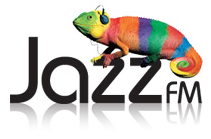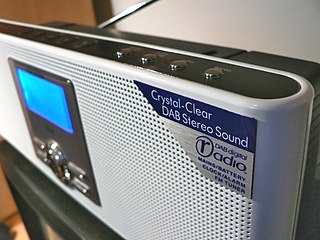Greater London DAB service
Following an independent report, commissioned by Bethel, on the future of MoS radio services, he led an application for a Digital audio broadcasting (DAB) licence for a full-scale radio station. The service was included as part of an application by a consortium called Switch Digital which proposed eight other services (including Heart 106.2, BBC London Live and Jazz FM). There were two other consortia bidding for the licence, [2] but Switch won the Greater London 2 (12A frequency) DAB licence from the then Radio Authority in 1999 to cover an area which included London and most of the Home Counties with ten transmitters. [3]
Bethel recruited the reports authors David Dunne (formerly Head of Music at MTV UK and Kiss 102) and Mark Ovenden (who had worked with Dunne at the same places and was also a former BBC Radio 1 producer). The small team of Sharp, Kingsley, Dunne and Ovenden began ripping thousands of dance tracks into the system, making a station identity and planning a full schedule. Another member of staff hired that year was Wendy Marr. Charlotte Coker joined later, as did Alexander Bartelemy, John Askew, Drew Erskine, Brian Cheetham and Iam Fulton (temporary).
Ministry of Sound Radio began test transmissions from a single PC in Bethel's office during the summer of 2000, while a full studio was constructed opposite the MoS reception desk. The station was also simulcast on the web, where at one point, it became the most listened to dance radio stream and eighth most listened to of any radio stream in the world (December 2001). [4]
The station moved to live programming when the studio was ready, from 21 September 2000. The station was officially launched by Paul Oakenfold with a live mix from inside the club itself. [5] Despite the minuscule audience listening on digital radio at that point, London had 50 DAB stations, [6] Dunne insisted on live DJs being put on air daily from 16:00 to 20:00, with live broadcasts from inside the Ministry club every Sunday morning from 02:00 to 06:00.
The music policy was almost exclusively house–trance–hard house-based, as this style of music was primarily what the club was known for, and R'n'B was already being well-covered on the broadcast band in London. (There was only one regular soul/R'n'B programme: Bobby & Steve's 'Soul Heaven'). When no live programmes were on, the automated Maestro system played out back-to-back music from the playlist or pre-recorded programmes.
During July and August 2000, the station was broadcast live every night from a makeshift studio built into the Ministry's hotel in Ibiza.
On 31 December 2000, Ministry held a New Year's Eve party at the Millennium Dome. The radio station ran a nine-hour, live, outside broadcast from the event, relaying the main dancefloor across London and to the world online.
Such a commitment to a DAB-only radio service was considered a major achievement in the industry and was honoured in 2002, when the station was awarded Gold as Digital Radio Station of the year at the InCar Magazine awards.
In 2001 the station also became the first UK DAB-only station to generate income from a paid-for commercial. [7]










